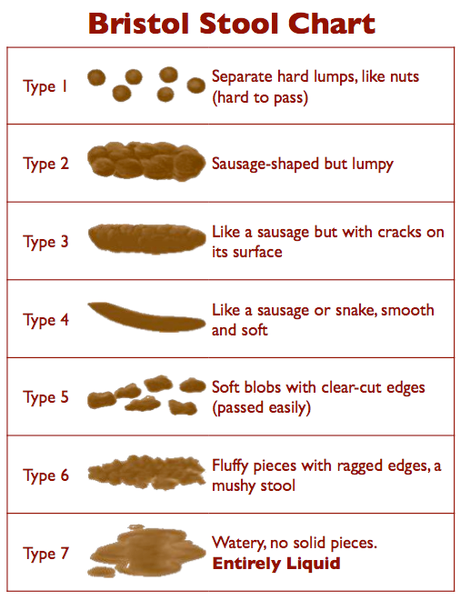The Bristol Stool Scale
Stool types 3 and 4 are the ideal stools (especially number 4), as they are easy to pass but are not too watery. Numbers 1 and 2 indicate constipation. Numbers 5, 6 and 7 show stools that tend towards diarrhoea. Constant constipation or diarrhoea can be an indication of poor health or conditions such as Irritable Bowel Syndrome (IBS) and lead to annoying, painful haemorrhoids (piles) or even at worst, colorectal cancer.
If you are concerned about your stools, take a good look at your diet. If you cannot correct it through a high fibre, high vegetable, low carbohydrate diet, with plenty of water taken during the day, then you should visit your doctor to rule out any serious health issues. You can use natural fibre bulking agents like psyllium husk if constipated, or take slippery elm powder if you have diarrhoea, but these are short term solutions and you need to take control of what you are eating. If this is hard to do on your own, consider visiting a herbalist or nutritionist for support.

©Chart by Kyle Thompson (Wikipedia).